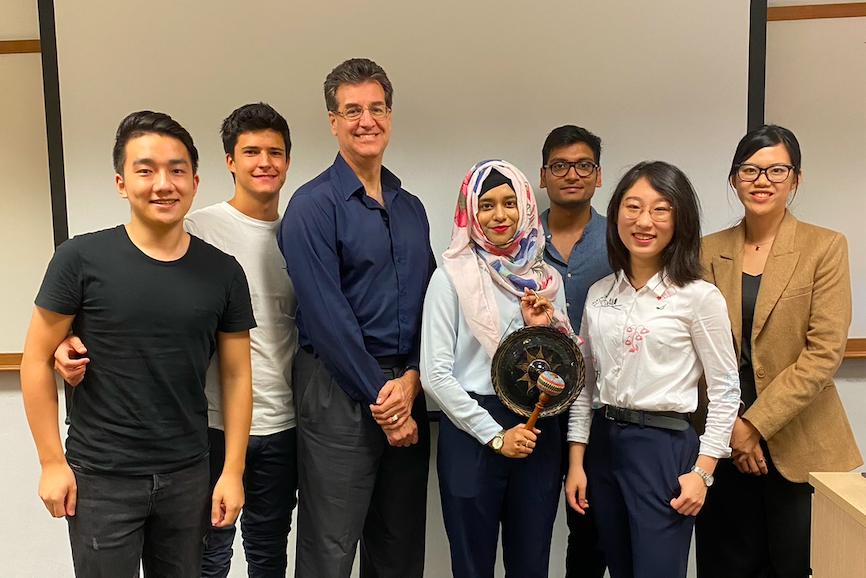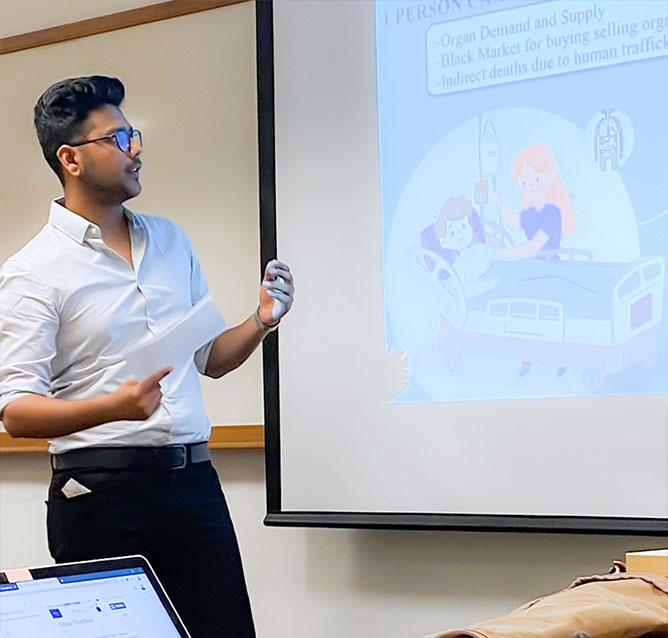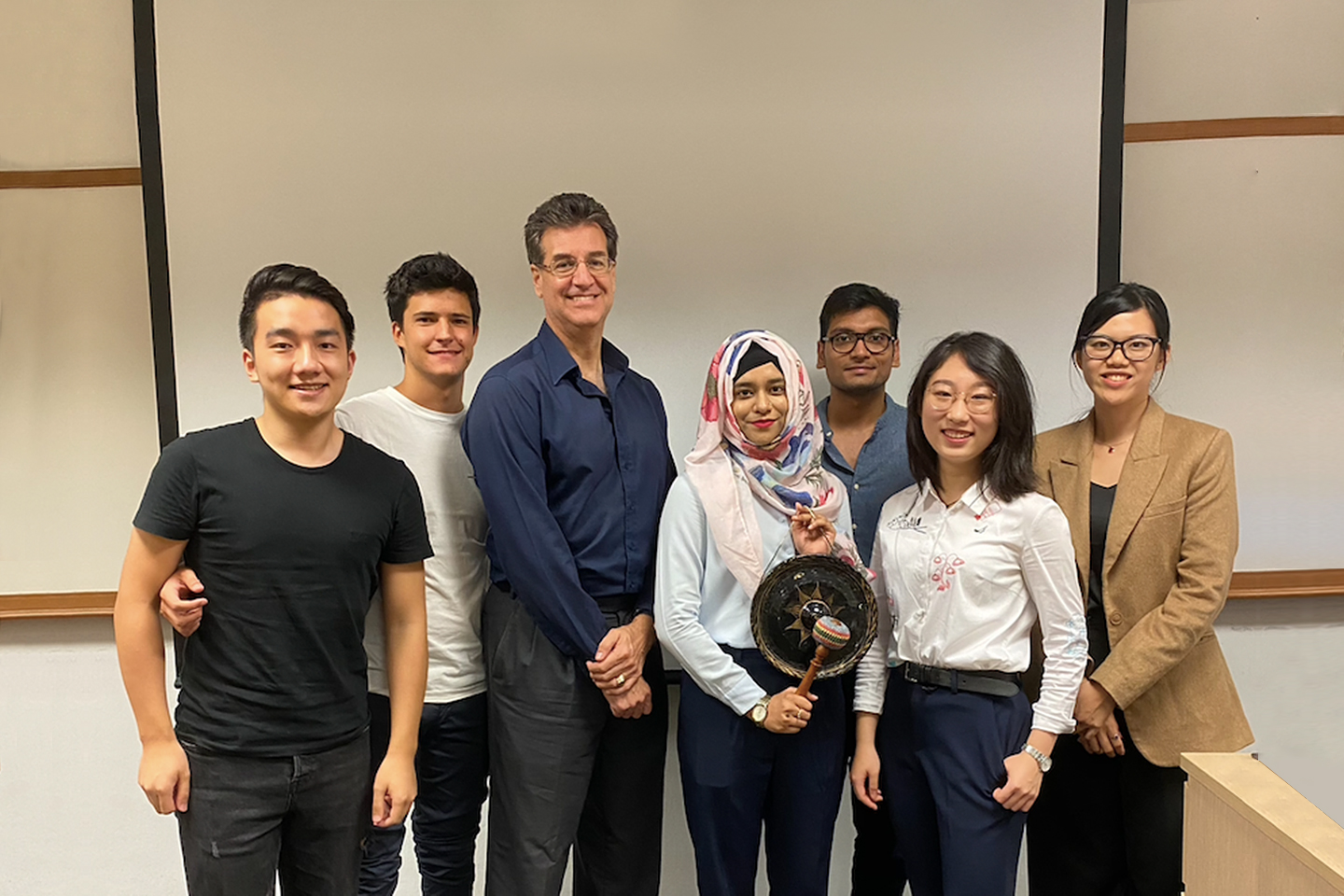As we enter the AI era, our students are being schooled in new ways of leveraging technology to better the world. New laws, such as those on data privacy, are being implemented, but small-and-medium enterprises (SMEs) may have lesser resources to comply with the regulations. Yet, they may be most vulnerable as the fines involved may hit them hard.
For the Knowledge & Innovation Economy 4.0 module, MSc in Management student Mandy Zhuang Caiman and her teammates proposed a plan for SMEs in the healthcare industry to cope with data privacy regulations.
Mandy said, “We identified a business opportunity where data controller companies can help to mask data collected from consumers. With the removal of personal identity, SMEs only keep the processed data needed to carry out the core business. This prevents SMEs from breaching data privacy laws inadvertently.”

From left to right: Liu Juncheng, Marco Pujatti; lecturer Alex Capri, Mahnoor Fairuza Khan, Harshit Agrawal, Tian Chang and Mandy Zhuang Caiman.
Alex Capri, who taught the class, said that it explores the business dimensions arising from the latest tech innovations and markets. “It’s designed to get students thinking about both new opportunities and risks,” said Alex.
Beyond how technologies work, it is more important to understand how they impact business, social and ethical issues. Alex added, “There are broad social implications to data capitalism as well techno-nationalism and technology-dystopias. We explore these and see if there may be emerging business angles.”
For MSc in Management student Nayan Dhameja, his project was based on a personal experience in the past. Nayan’s grandfather was in need of a kidney transplant in 2016, but the process to look for a donor was arduous. There is a worldwide shortage of organ donors. In addition, black markets for organs and fragmented databases of donors and receivers hinder the process.
Nayan’s team proposed for the World Health Organisation to have an organ transplantation network based on blockchain technology. Donors and receivers are given a unique identification code when they register to join the network through hospitals. Once a donor is available, AI technology will be used to identify the most compatible receiver. Upon successful transplantation, the hospital will update the process on the network. If a transplant takes place and an organ’s DNA does not match to a donor on the blockchain, it may mean that the organ has been fetched illegally.
“We cannot magically increase the number of donors, but we can make sure that every existing donor is matched with the receiver with the help of blockchain, AI and smart contracts,” said Nayan.

Nayan Dhameja presenting on an organ transplant network based on blockchain.
Besides blockchain and data privacy, the module also covers topics such as supply chain traceability for carbon footprints and ethical labour practices, as well as the need for a global digital currency and the merits of an open banking ecosystem.
Mandy said, “The relevance and versatility of this course covers a lot of industry ‘research hotspots’. It touches a lot of subjects and we can choose the topic that we are interested in to go deeper. There is a lot of free discussion, and the atmosphere is relaxed, almost like a café!”





